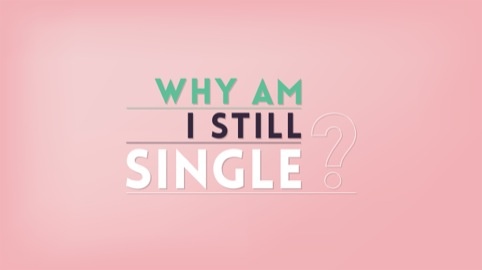The question “Why am I single?” ranks among the most searched queries on Google worldwide. Exploring this question reveals a mix of curiosity, self-reflection, and the universal desire for connection. By diving deep into what Google search data and online discourse say about this subject, we can uncover not just common answers but also new perspectives that empower those wondering about their relationship status. This article takes a comprehensive look at “Why I’m Single,” guided by Google search behaviors and supported by psychological insights to help readers gain clarity and confidence.
What Google Reveals About Singleness
Google provides a unique window into collective human thoughts and concerns. The autocomplete feature and related searches connected to “why I’m single” reveal common anxieties, assumptions, and desires such as:
-
Why am I single if I’m attractive?
-
Why am I single at 30?
-
Why am I single when everyone else isn’t?
-
Why am I still single after a tough breakup?
-
Why am I single but happy?
These reflect multiple dimensions of singleness—from appearance and social comparison to emotional readiness and contentment.
Breaking Down the Main Google Search Insights
Appearance vs. Emotional Connection
The frequent search “why am I single if I’m attractive?” highlights a widespread misconception that physical appearance alone ensures romantic success. Google search data shows many grapple with loneliness despite societal praise for appearance. Experts agree that emotional intimacy, shared values, and communication skills are critical relationship pillars often overlooked in popular culture.
Age and Societal Expectations
Queries like “why am I single at 30” underscore the social pressure often attached to age milestones. Google data reveals spikes in these searches among users in their late 20s and early 30s, implying anxiety about not meeting perceived life “benchmarks.” Relationship experts emphasize that personal timelines differ and advise focusing on individual readiness rather than societal deadlines.
Post-Breakup Realities
Many turn to Google when coping with breakups, searching for explanations for their singleness. Searches such as “why am I still single after a breakup” point to the healing and self-reflection phase. Self-compassion and therapy are frequently recommended in expert sources as crucial tools to navigate this transition healthily.
The Rise of Positive Singleness
Interestingly, searches like “why am I single but happy” showcase a growing cultural shift celebrating singleness as a valid and positive lifestyle. Analysis of these queries suggests increased awareness around self-love and autonomy, reflecting a healthier, more empowered relationship with singleness.
Psychological Perspectives Backing Google’s Data
Psychology provides depth to what might otherwise be surface-level Google data. According to experts:
-
Attachment Styles: People’s early life attachment models affect their relationship behaviors and challenges. Avoidant or anxious attachment styles often correlate with prolonged singleness until addressed.
-
Self-Esteem: Low self-esteem can cause people to settle or avoid relationships, while high self-esteem encourages setting healthy boundaries.
-
Emotional Intelligence: The ability to understand and manage emotions impacts relationship satisfaction and longevity.
Thus, Google’s data is a starting point, leading to deeper personal work to understand and improve relationship readiness.
Practical Advice Informed by Search Trends
To translate Google’s insight into action for those wondering why they’re single, here are key strategies:
-
Build Emotional Awareness: Practice mindfulness, journaling, or therapy to enhance emotional insight and resilience.
-
Challenge Societal Narratives: Define your own relationship timeline and values, freeing yourself from external pressures.
-
Focus on Quality over Quantity: Cultivate meaningful connections instead of numerous superficial interactions.
-
Rebuild After Breakups: Allow time for healing and reflection; consider professional support if needed.
Credible Resource for Relationship Support
For those seeking expert guidance beyond Googling, the American Association of Marriage and Family Therapy (AAMFT) offers trusted resources and therapist directories to find professional help in managing singleness and relationship challenges (AAMFT Find a Therapist tool).
Read More: Why I’m Single According to Google Searches (And What It Means for You)
Final Thoughts
The phrase “why I’m single” carries the weight of personal questions that millions share globally. Google’s search trends give us insight into the common and complex reasons behind singleness, from societal expectations to emotional readiness. By looking beyond the search bar and embracing scientific and psychological insights, individuals can transform singleness from a source of frustration into an opportunity for growth, understanding, and eventual meaningful partnership.








[…] Read More: Why I’m Single: A Deep Dive into What Google Says […]